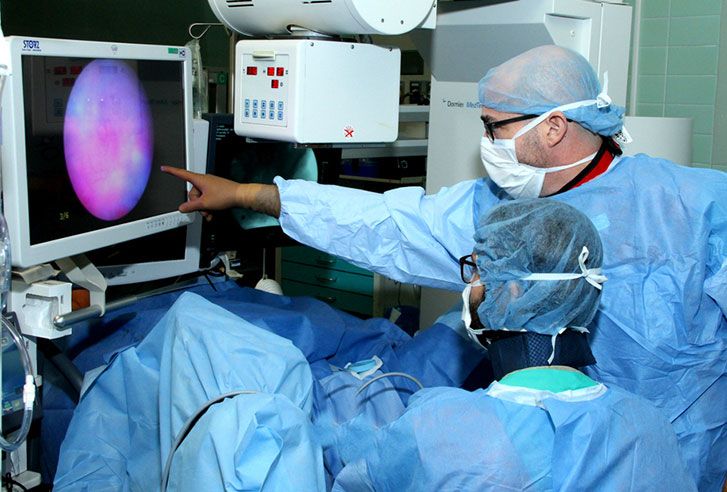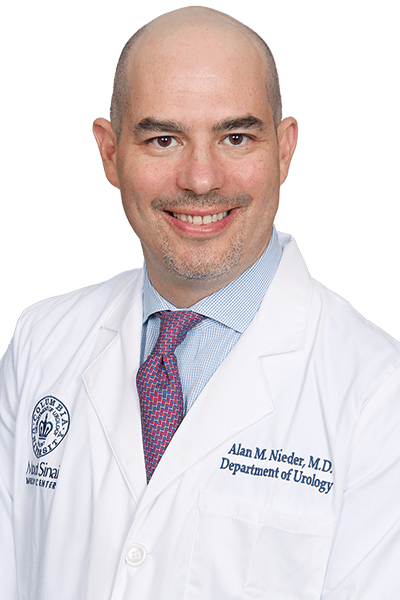While many people assume that bladder cancer only occurs in older men – it is the fourth most common cancer in men – and nine out of ten people diagnosed are over the age of 55 – it can actually occur in both men and women at a variety of ages.
There’s no recommended screening test like there are for other cancers, but the good news is that it’s often detected early – and therefore often treatable – if you know the signs.
How do you know if you have bladder cancer? The most common way bladder cancer is detected is when people see their doctor because of blood in the urine or other urinary symptoms. Many of these symptoms often have less serious causes, but it’s important to have them checked by a doctor right away so the cause can be found and treated. If the symptoms are from bladder cancer, finding it early offers the best chance for successful treatment.
How is bladder cancer detected? Detecting bladder cancer quickly and accurately is imperative, and Mount Sinai now offers a revolutionary diagnostic and treatment approach that may be beneficial for certain patients. Called blue light cystoscopy with Cysview® , the cutting-edge technology not only improves detection, it can also assist in the removal of bladder cancer with greater accuracy and can reduce the chance of recurrence. Mount Sinai is only one of three facilities in Florida to offer this technology.
So, what is blue light? Blue light is a form of imaging technology used during a cystoscopy that allows doctors to better see tumors in the bladder. Prior to the operation, a small catheter is placed into the bladder to dispense the Cysview® liquid. During the procedure, doctors are able to view the bladder two ways – with a normal white light and with the “blue light” view. With just a white light procedure, smaller cancerous areas may not be easily detected because their color can look the same as surrounding healthy tissue. But with blue light, the cancerous cells absorb the Cysview® liquid and appear bright pink under the blue lighting, illuminating all tumors and their precise sizes. The combination of the two types of lights allows physicians to diagnose and remove more tumors that otherwise could be overlooked.
Is blue light safe? Blue light cystoscopy with Cysview® is approved for use by the FDA, and is also currently incorporated into the American Urologic Association Bladder Cancer Guidelines. The most recent guidelines recommend that blue light cystoscopy be considered for use for all patients with suspected bladder tumors.
Does blue light cystoscopy increase operating time? Typically operating time is increased by 5-10 minutes; however, that extra time allows your urologist to visualize and map out the bladder more thoroughly. We believe this extra time spent translates to fewer missed small tumors and thus will ultimately decrease recurrence rates.
Where do you see the future applications of blue light cystoscopy? It is very likely that in the future, all patients will have their operative cystoscopies, bladder biopsies, and TURBTs (transurethral resection of bladder tumors) performed with blue light once the technology is adopted by more hospitals and health systems. Until then, patients always have the opportunity to seek out a urologist at Mount Sinai for a second opinion and to see if blue light cystoscopy is appropriate for their care.
Dr. Alan Nieder is the co-chief of the department of urology and an Associate Professor of Urology at Columbia University’s Division of Urology at Mount Sinai Medical Center. He specializes in urologic oncology, laparoscopy and endourology. Dr. Nieder was recognized for his expertise in bladder cancer, laparoscopic surgery, prostate cancer, urologic cancer and prostate benign disease by Newsweek and listed as one of America’s Top Cancer Doctors.



